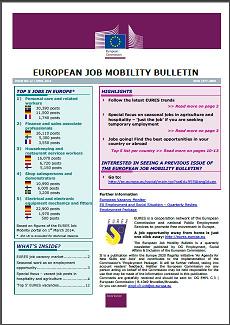Varoufakis, Y. (2014) “How should the ECB enact Quantitative Easing? A proposal“, Thoughts for the post-2008 World Blog, 19 Μαΐου. The ECB has no alternative to enacting some form of Quantitative Easing (QE) in order to prevent deflationary expectations from setting in fully. Core inflation has already reached a level that, even according to Mr Draghi’s own pronouncements on 24th April, should have already triggered off QE. However, the ECB’s governing …Read More
Democracy causes economic development?
Acemoglu, D., Naidu, S., Robinson, A. J. & Restrepo, P. (2014) “Democracy causes economic development?“, VoxEU Organisation, 19 Μαΐου. Many analysts view democracy as a neutral or negative factor for growth. This column discusses new evidence showing that democracy has a robust and sizable pro-growth effect. The central estimates suggest that a country that switches from non-democracy to democracy achieves about 20% higher GDP per capita over the subsequent …Read More
How unequal is the European Parliament’s representation?
Véron, N. (2014) “How unequal is the European Parliament’s representation?“, Bruegel Think Tank, 16 Μαΐου. The European Parliament election of May 22-25, 2014 has several unprecedented features. It is the first election under the Lisbon Treaty. As a consequence, and for the first time, the main pan-European parties – including the center-right European Peoples’ Party (EPP) and the center-left Socialists and Democrats (S&D) – are fielding lead candidates for …Read More
Will voters turnout in the 2014 European parliamentary elections?
McDougall, O. & Mody, A. (2014) “Will voters turnout in the 2014 European parliamentary elections?”, Bruegel Think Tank, 16 Μαΐου. The extent of voter turnout in the 2014 European Parliamentary (EP) election is widely viewed as a critical test for European democracy. Turnout in the EP elections has steadily declined over three decades from 62 percent in the first election in 1979 to 43 percent in the 2009 election. …Read More
ECB: An appropriate monetary policy
Levy, M. (2014) “ECB: An appropriate monetary policy“, VoxEU Organisation, 16 Μαΐου. As banks repay their loans from the Long-Term Refinancing Operation, the ECB’s balance sheet is shrinking. This column argues that, given the slow recovery and sustained low inflation, the ECB should replace its bank lending programme with quantitative easing. Buying short-term government debt would be consistent with the ECB’s inflation target, would keep the ECB’s monetary policy …Read More
Η Τρόικα, η κυβέρνηση και η τέχνη τού εφικτού – Στόχοι, αναγκαιότητες και περιορισμοί της ελληνικής στρατηγικής απέναντι στους δανειστές
Χατζηεμμανουήλ, Χ. (2014) “Η Τρόικα, η κυβέρνηση και η τέχνη τού εφικτού – Στόχοι, αναγκαιότητες και περιορισμοί της ελληνικής στρατηγικής απέναντι στους δανειστές“, Foreign Affairs Hellenic Edition, 16 Μαΐου. Η Ελλάδα φαίνεται να βγαίνει, επιτέλους, από την κρίση. Έτσι, τώρα μπορούν πια να αναλυθούν οι στόχοι, οι αναγκαιότητες και οι περιορισμοί τής ελληνικής διαπραγματευτικής στρατηγικής απέναντι στους δανειστές τής χώρας. Κεντρικός στόχος της ελληνικής κυβέρνησης, πάντως, εξακολουθεί να είναι …Read More
The Reconstruction of European Politics
James, H. (2014) “The Reconstruction of European Politics“, Project Syndicate, 15 Μαΐου. PRINCETON – Many Europeans tremble at the likely outcome of the upcoming European Parliament election: a strong showing for anti-European protest parties, which will almost certainly try to present themselves as the real winners. But hand-wringing will not resolve the European Union’s political crisis. And the crisis runs deep. Nowadays, anti-EU parties – Marine Le Pen’s National …Read More
European Job Mobility Bulletin
European Commission (2014) European Job Mobility Bulletin, Issue No. 12 , 30 Απριλίου. According to this issue of the European Job Mobility Bulletin, based on the vacancies published on the EURES portal, the top 5 jobs in Europe are: Personal care and related workers, Finance and sales associate professionals, Housekeeping and restaurant services workers, Shop salespersons and demonstrators, and Electrical and electronic equipment mechanics and fitters. This Bulletin is available in …Read More
How the euro changed the pattern of international debt flows
Hale, G. & Obstfeld, M. (2014) “How the euro changed the pattern of international debt flows“, VoxEU Organisation, 15 Μαΐου. Large flows of bank lending from core countries in the Eurozone to the periphery lead to large financial imbalances. This column explains what motivated such financial flows. With the advent of the Eurozone, banks in core countries gained relative advantage in lending to the periphery, making such lending very …Read More
The Trouble with Europe
Buruma, I. (2014) “The Trouble with Europe“, Project Syndicate, 15 Μαΐου. NEW YORK – According to the latest opinion polls, the big winners in the European Parliament election later this month will be right-wing populist parties that share a common loathing of the European Union, most notably the National Front in France, the Freedom Party in the Netherlands, and the United Kingdom’s Independence Party. Though the Euroskeptic right may …Read More





